A survey found that 70% of consumers trust UGC more than branded content, and 79% say UGC highly impacts purchasing decisions.
This data underscores a pivotal shift in social media marketing—audiences are gravitating towards content that resonates on a personal level while also providing entertainment value.
As we navigate 2025, understanding and leveraging relatable content is essential for brands aiming to make meaningful connections with their audience. The importance of authenticity cannot be overstated, as consumers seek brands that understand their needs and reflect their values and perspectives. This blog explores the concept of relatable content and offers actionable tips to integrate it into your marketing strategy.
Simplified social media marketing for individuals & agencies.
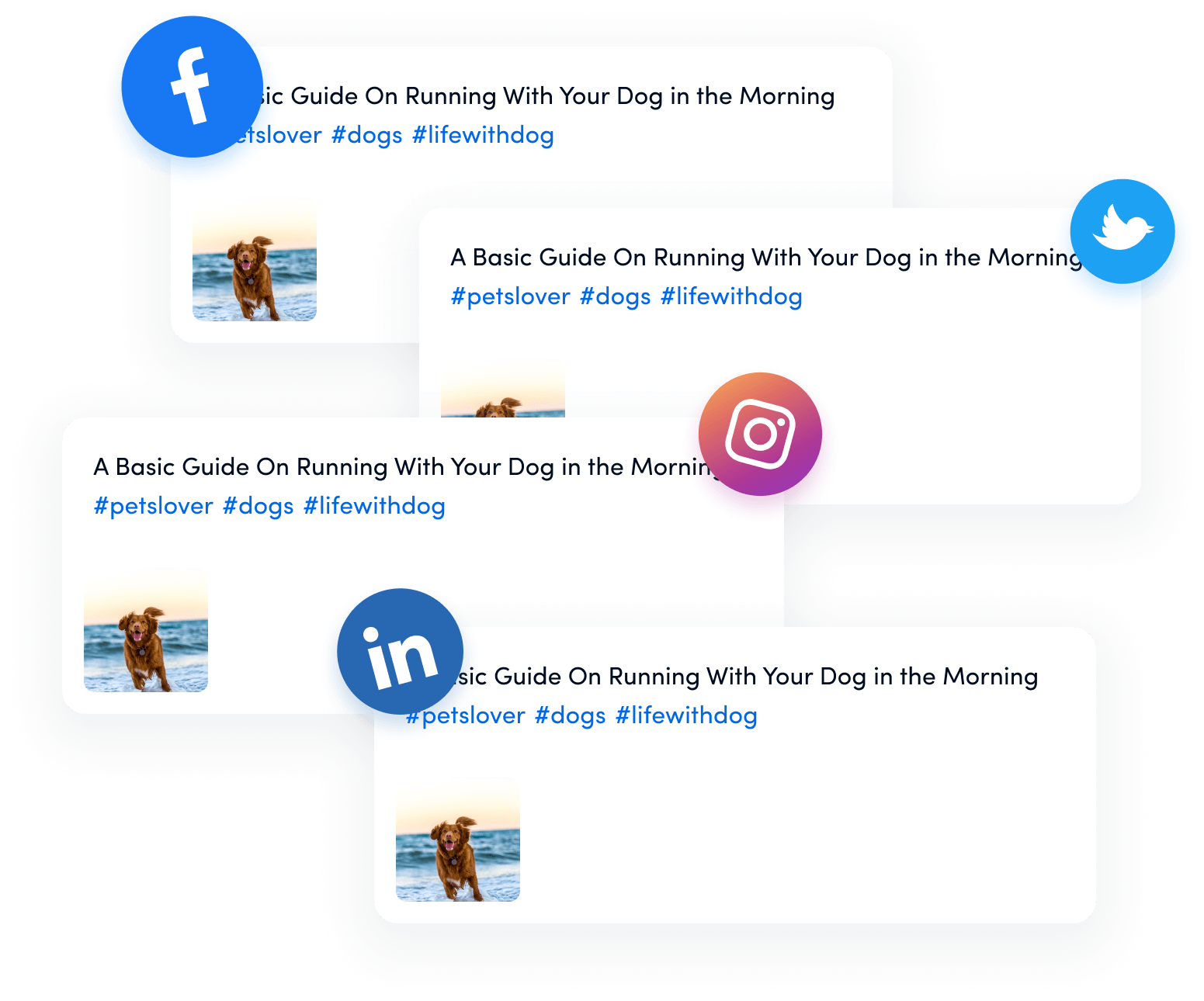
What does relatable content mean?
Relatable content strikes a chord with its audience, tapping into shared experiences, emotions, or values. It’s the type of content that viewers see and thinks, “That’s exactly how I feel!” or “That’s so true!” This connection is crucial in building trust and fostering a sense of community between a brand and its audience.
For example, consider a small coffee shop that shares a post about the Monday morning rush featuring a video of their barista dancing while making a series of espresso shots. The caption reads, “We’re all trying to espresso ourselves this Monday morning! Who else needs a double shot to get going?” This content showcases the shop’s vibrant atmosphere and sense of humor and resonates with the common feeling of struggling to wake up at the start of the week. The shop creates an engaging and relatable narrative by mirroring its customers’ daily experiences and moods.
Also Read: How brands boost X (formally Twitter) engagement with humor
Why is being relatable on social media important?
Relatable content encourages engagement, builds trust, influences consumer decisions, and enhances brand loyalty. Here, we explore four significant benefits of being relatable on social media, each underscored with practical examples.
1. Building trust through authenticity
Authenticity has emerged as a key factor for establishing trust in a world rife with misinformation and superficial engagement. When brands consistently present themselves truthfully and transparently, they are more likely to garner the trust of their audience. This trust, over time, translates into increased customer retention and sales.
P.S. Are you wondering how to build brand authenticity on social media?

For example, consider how Starbucks enhances transparency and authenticity with its audience. The company has participated in the “Unwrapped” series on the Food Network, where they revealed the detailed process of how Starbucks coffee is made, from the extraction of coffee beans to the final product being served to customers. Additionally, Starbucks regularly posts behind-the-scenes videos on their social media platforms, showcasing baristas crafting beverages.
These glimpses into the journey of their coffee, as well as the skill and care of their staff, not only demystify the process but also build a genuine connection with their customers by highlighting the craftsmanship and quality that go into each cup. This approach develops trust and reinforces their commitment to transparency, which, in turn, boosts customer loyalty and sales.
2. Fostering engagement with targeted content
Relatable content resonates deeply with a specific audience, encouraging more interactions such as likes, shares, and comments. This amplifies the content’s reach and strengthens the brand’s and its followers’ bond. Engaged followers are more likely to become advocates and loyal customers.

For instance, consider how Forma.ai effectively uses relatable content to engage its audience. The company cleverly incorporates memes into its social media strategy, focusing on the niche topic of sales compensation analysis. By using humor and relatable situations depicted in these memes, Forma.ai initiates dialogue about what can be a complex subject, making it more accessible and engaging for its followers. These memes often prompt followers to share their experiences or opinions in the comments, boosting interactions.
Social Customer Service Never miss a message or comment from your social media audience. Try ContentStudio’s Inbox.
3. Influencing consumer decisions
Relatable content has a profound impact on consumer behavior. Brands often collaborate with influencers who embody their target demographics’ aspirations and lifestyles. These influencers can sway their audiences to take actions such as making a purchase, signing up for a newsletter, or attending a brand event, primarily because of the trust and relatability they have cultivated.

Nike partners with top athletes like LeBron James and Serena Williams, who excel in their sports and resonate with broad audiences. By associating their products with these influential figures, Nike leverages their appeal to inspire and influence consumer decisions. Seeing their admired athletes endorse Nike, fans are more likely to trust and purchase from the brand, driven by a connection to the lifestyle and success these athletes represent.
4. Enhancing brand loyalty
When followers see their values and experiences reflected in a brand’s content, they are more likely to develop a deep, emotional connection to the brand. This loyalty is crucial in today’s competitive market, where customers have endless choices. Loyal customers not only repurchase but also act as brand ambassadors.

GoPro’s #GoProChallenge is a stellar example of enhancing brand loyalty through user-generated content. By inviting users to share their exhilarating action videos, GoPro highlights real customer experiences, aligning with their adventurous brand image. This initiative showcases the capabilities of GoPro cameras in dynamic environments and deepens the emotional bond with the brand. Participants feel valued and part of a community, which cultivates loyalty and turns them into passionate brand ambassadors, sharing their GoPro moments and influencing others.
Ways to make relatable content in 2025
In 2025, the ability to create content that resonates with your audience is more crucial than ever. With the digital landscape becoming increasingly saturated, standing out requires catching the eye and capturing the heart. Here are fifteen game-changing practices for crafting content your audience can connect with, complete with real-world examples.
Instagram Marketing Schedule your Instagram posts, Reels, and Stories, and get recommended best time to publish for maximum engagement.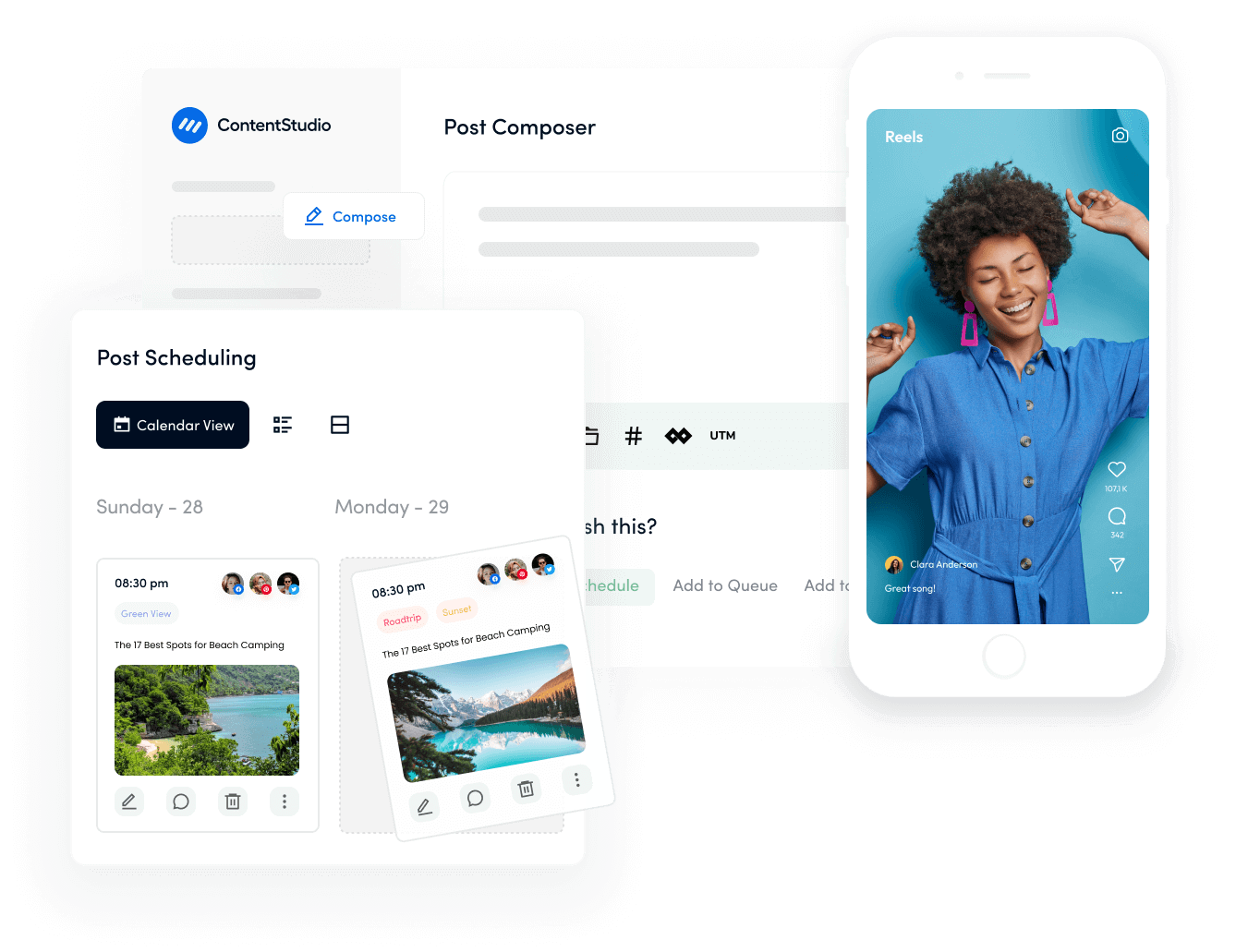
1. Put your audience first
Understanding and prioritizing your audience’s preferences is foundational in creating relatable content. This approach means crafting posts that mirror their interests, challenges, and experiences. A striking example is from Madame Matovu Vintage, a NYC-based vintage store. They shared a simple yet effective post of a customer who styled a piece she just bought.

The authenticity and relevance of the content generated significant engagement, as it directly reflected the tastes and aspirations of their fashion-forward audience. This shows that sometimes, the most straightforward content can be the most impactful when aligned with audience interests.
2. Write the way your audience talks
Relatability can also be enhanced by mimicking your audience’s language and tone. This makes your content feel like a conversation rather than a broadcast. The Local Branch, a small leather goods company, excels at this. Their social media captions are crafted to sound conversational and natural as if speaking directly to a friend. This approach draws readers in and strengthens the personal connection between the brand and its customers. To ensure authenticity, they recommend reading captions aloud before posting to catch any phrases that might sound unnatural.

3. Speak directly to your customers
Direct communication with your audience can significantly reduce the distance digital platforms create. A compelling instance of this method is demonstrated by the CEO of Brown Toy Box, who used a simple video to give a heartfelt shoutout to a supportive customer. By addressing the audience directly, without scripted lines or promotional content, the message felt personal and sincere, enhancing relatability and fostering a stronger community feeling among viewers.
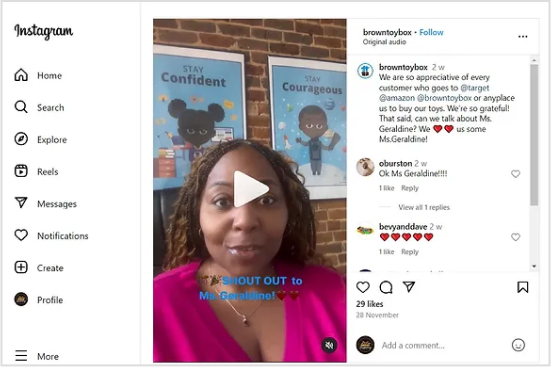
4. Share a behind-the-scenes look
Transparency is key to relatability. Sharing behind-the-scenes content is an excellent way to humanize your brand. Industry of All Nations provides a great example by regularly sharing videos of how their products are made. Whether it’s a quick tour of the office, the packaging process, or an in-depth look at production, these glimpses behind the curtain intrigue and build trust and affinity by showing the human effort and authenticity that benefits its brand reputation.
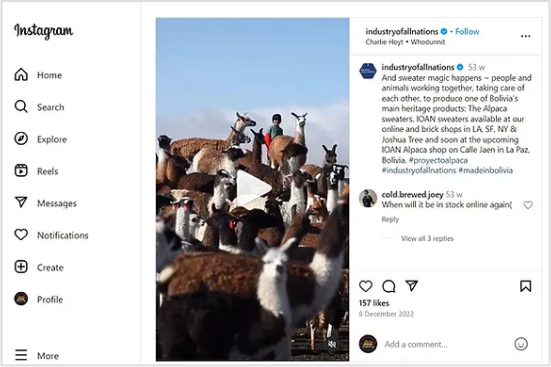
5. Get specific when addressing pain points
Directly addressing the specific challenges your audience faces can significantly boost relatability. Shop and Kinnstudio, a jewelry business, actively asks their followers about their pain points and provides tailored solutions. This approach not only positions the brand as helpful and attentive but also deeply resonates with the audience as it tackles their specific concerns, enhancing the relevance and impact of the content.

6. Celebrate diversity and inclusion
Embracing and showcasing diversity within your content is crucial for connecting with a global audience. Highlighting diverse voices and perspectives enriches your content and reflects your audience’s varied experiences, fostering a broader connection. Dove’s Real Beauty campaign celebrates diversity and inclusion by featuring women of various ages, sizes, ethnicities, and backgrounds in its advertising.

Unlike traditional beauty campaigns that showcase idealized images, Dove highlights authentic, unretouched photos of real women, promoting the idea that beauty is diverse and unique.
Dove further champions diversity with its innovative limited-edition range of Dove Body Washes, where “Real beauty comes in all shapes and sizes—and now our body wash bottles do too.” This initiative introduces six unique bottle designs, each representing different body shapes, symbolizing that beauty is not one-size-fits-all. These distinctive designs serve as a visual celebration of diversity, encouraging women to appreciate and embrace their unique individuality.
7. Highlight user success stories
Sharing success stories from real users provides social proof and inspires and motivates your audience. ClickUp effectively uses customer success stories to engage and inspire its audience. For example, they shared an Instagram story from @isntshestellar, a business owner who utilizes ClickUp’s project management tools to streamline and automate her business processes. This real-world example demonstrates the practical benefits of ClickUp’s software and motivates potential customers to envision how they could similarly optimize their business operations.

8. Regularly update content to reflect current events
Stay relevant by updating your content to reflect current trends or events. This shows that your brand is aware of and responsive to the outside world, which is crucial for maintaining relatability.
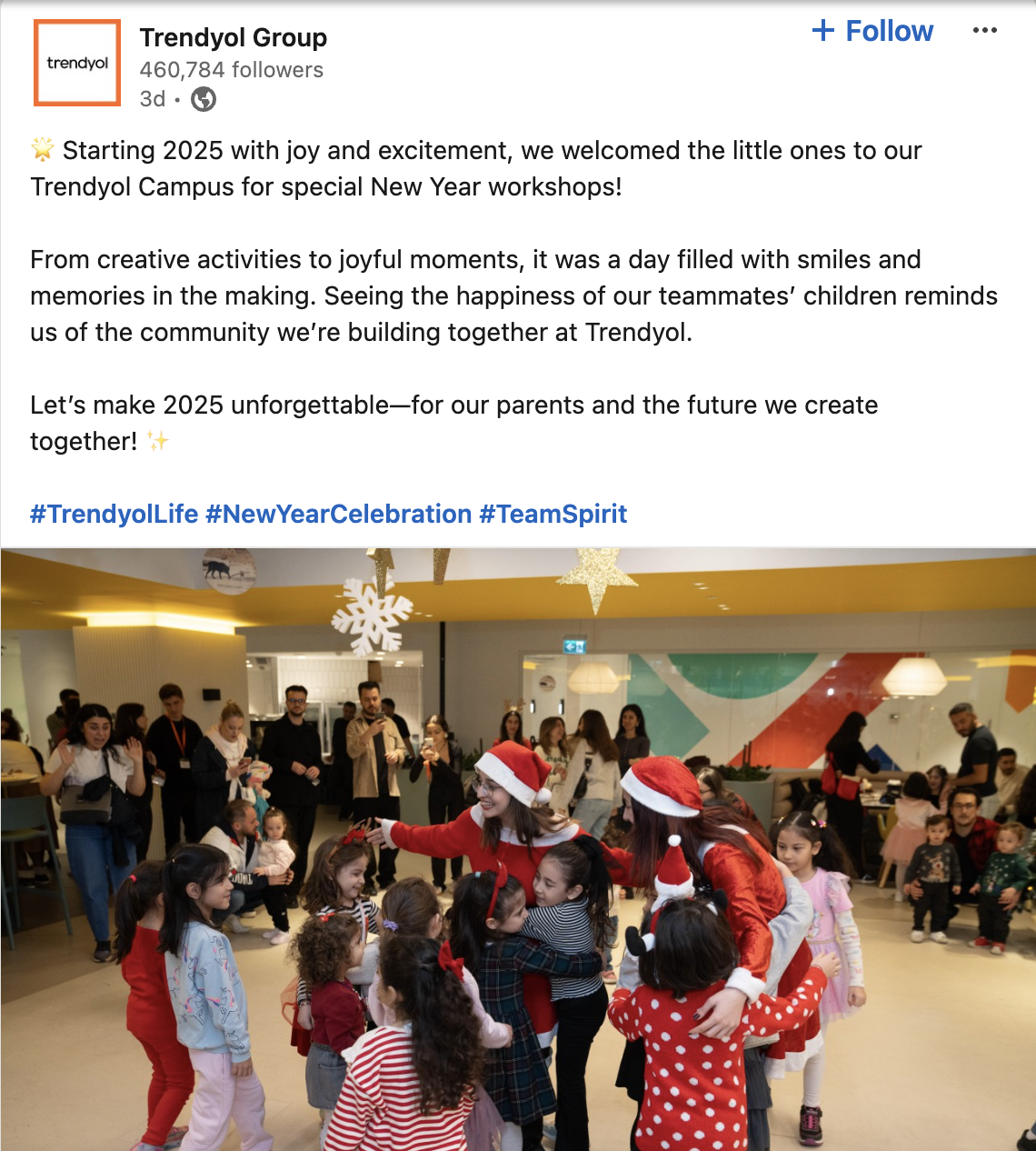
Trendyol showcased the importance of staying current by sharing highlights from its new 2025 Global E-commerce Strategy in a LinkedIn post. The update focused on how shifting consumer expectations, advancements in logistics, and omnichannel shopping experiences will continue to shape online retail through 2025.
By grounding their commentary in fresh market data and practical takeaways, Trendyol reinforced its standing as a forward-thinking industry leader and provided actionable guidance that helps businesses and consumers anticipate and adapt to the rapidly evolving digital marketplace.
Content Discovery Find the top-performing content on the web and never run out of social media post ideas.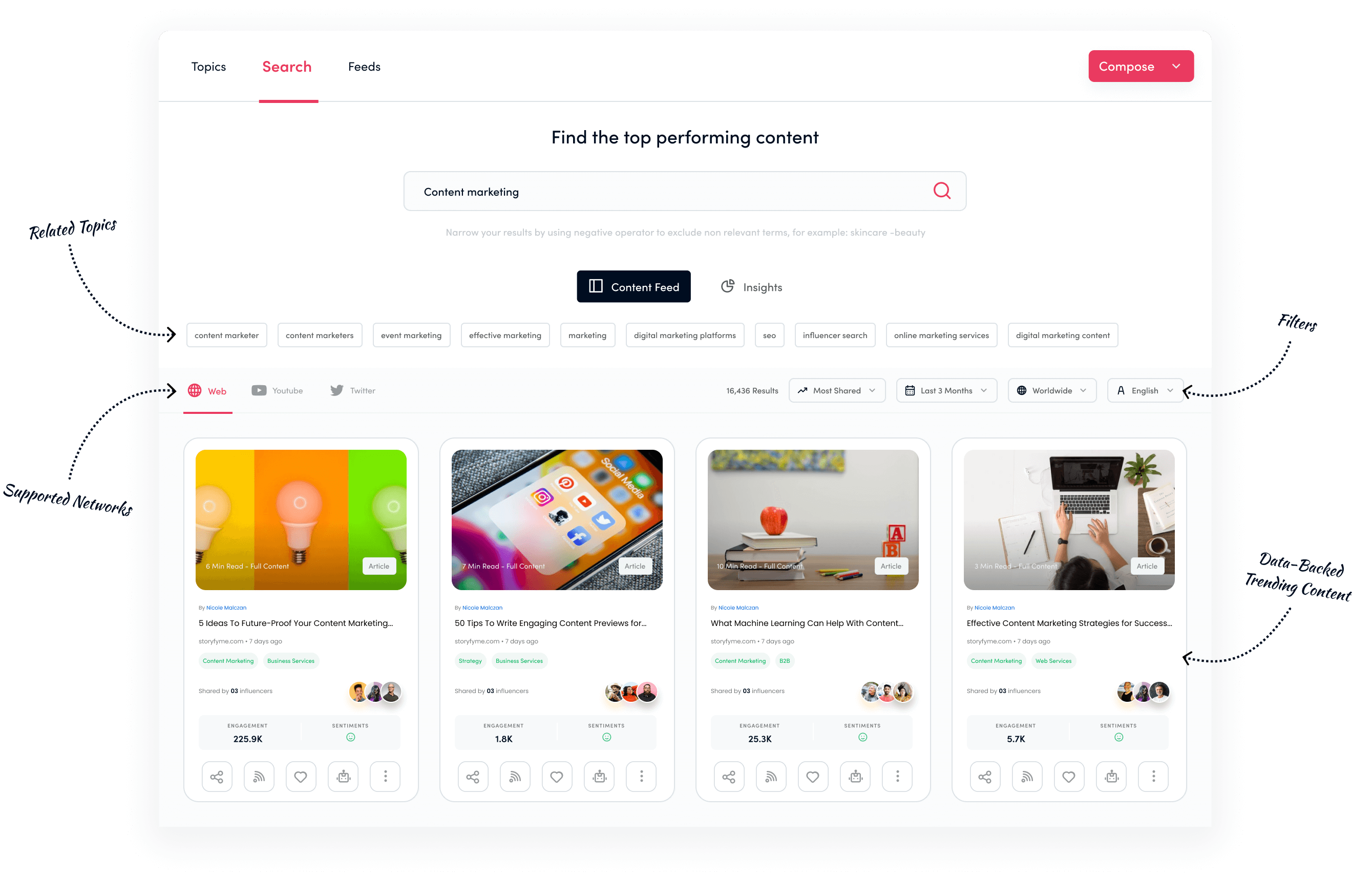
9. Utilize interactive content to engage
Interactive content such as quizzes, polls, or videos can dramatically increase engagement and make your content more relatable by involving the audience directly.
Airbnb effectively uses interactive content to engage its audience, incorporating simple yet engaging polls on its social media platforms.

For instance, they posted on X (formerly known as Twitter) asking their followers, “The long weekend starts now. What are your plans? #AirbnbLongWeekend.” This straightforward question not only prompts followers to share their personal plans, creating a thread of community interactions but also subtly reminds them of the possibility of booking an Airbnb for their adventures. This method enhances engagement by making the content relatable and directly involving the audience in a conversation, fostering a stronger connection between the brand and its consumers.
10. Foster a sense of community
Creating a community around your content can transform passive viewers into active participants. Encourage discussions, create group challenges, or host live Q&A sessions where your audience can interact with you and each other. The Happy Gardening Life on Instagram is a prime example of how to foster a sense of community through content. With over 350,000 followers, this platform has become a hub for gardeners to share their experiences, tips, and inspirations.
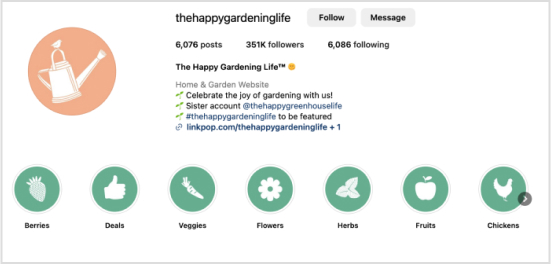
Regularly posting user-generated content, organizing monthly gardening challenges, and hosting live Q&A sessions with gardening experts create a dynamic space that encourages interaction among followers. This approach transforms followers from passive viewers into active community members, deeply engaged and connected with the brand and each other, enhancing their collective experience and knowledge.
11. Maximize engagement with user-generated content (UGC)
User-generated content (UGC) is a powerful tool to enhance authenticity and foster community. By showcasing content created by your audience, you signal trust and appreciation for their contributions, making your brand more approachable and relatable.

La Croix effectively maximizes engagement through its strategic use of user-generated content on social media. They frequently reshare photos and fan art from their community, highlighting how customers integrate their favorite La Croix flavors into their daily lives. This approach maintains the brand’s vibrant and authentic image and makes its followers feel valued and seen. By actively promoting user contributions, La Croix enhances its community’s sense of involvement and loyalty, showcasing real-life brand interactions that resonate with new and existing customers. This strategy demonstrates a powerful use of UGC to build a relatable and approachable brand presence.
12. Offer value with educational content
Providing educational content that helps solve problems or enhance skills is incredibly relatable and adds immense value to your audience. Mint.com offers valuable educational content by providing comprehensive guides and videos on personal finance management tailored for college graduates. Their free online budgeting tool assists users in setting and tracking budgets effectively, enhancing their financial literacy and decision-making skills.

By consistently delivering helpful financial advice through blog posts and social media, Mint positions itself as an authority in personal finance. It cultivates lasting trust and engagement with its audience, demonstrating the power of educational content in fostering customer loyalty and brand growth.
13. Personalize content with geo-targeting
Use geo-targeting to tailor your content to specific regions or localities, making it highly relevant to those audiences. For instance, Urban Outfitters used geo-targeting to enhance its marketing strategy by collaborating with Appboy and PlaceIQ. They implemented dynamic audience filters to personalize messaging based on the geographic locations of their customers. This technique enabled them to send targeted push notifications promoting party dresses to female customers recently visiting bars and nightclubs.

The result was a highly effective campaign that saw a 75% increase in conversions and a 146% rise in revenue. By tailoring content to specific consumer behaviors linked to their locations, Urban Outfitters significantly boosted engagement and sales, showcasing the effectiveness of geo-targeted personalization.
14. Implement feedback loops
Incorporate mechanisms for feedback to show your audience that their opinions matter and continuously improve your content’s relevance. Hyatt Hotels excels in implementing feedback loops, particularly through its strategic use of social media platforms like Instagram and Twitter. By encouraging guests to share their stay experiences using hashtags like #WorldOfHyatt and #WorldOfUnderstanding, Hyatt not only garners valuable customer feedback but also fosters a sense of community among its patrons.

They actively monitor these hashtags and customer mentions to gather insights into guest satisfaction and areas needing improvement. This proactive approach allows Hyatt to respond directly to customer concerns and suggestions, demonstrating their commitment to enhancing guest experiences and adapting their services based on real-time feedback.
15. Highlight environmental or social responsibility
Demonstrate your brand’s commitment to broader environmental or social issues, which resonates deeply with today’s consumers, especially younger generations. One effective approach is to create a QR code and place it on product packaging that instantly connects consumers to detailed information about proper recycling methods, the package’s environmental impact, and the brand’s sustainability initiatives. Coca-Cola exemplifies commitment to environmental responsibility through its “world without waste” initiative. They focus on achieving sustainable practices by ensuring all their packaging is 100% recyclable and promoting the recycling of every bottle.
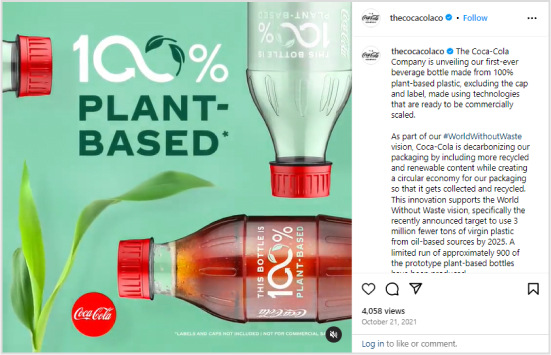
Coca-Cola also introduced a bottle made entirely from plant-based plastic, reinforcing its goal of reducing the carbon footprint by 25% by 2030. This initiative not only emphasizes their dedication to sustainability but also encourages industry-wide participation, showcasing their leadership in fostering environmental stewardship and influencing other companies to adopt similar sustainable practices.
Social Media Content Calendar Stay consistent and organized with Contentstudio’s social media content calendar for marketers and agencies.
Wrapping up
As we look towards a future where digital content becomes increasingly abundant, the brands that distinguish themselves will understand their audiences and engage with them meaningfully. This blog delineates strategic approaches to formulating content that genuinely connects with audiences, emphasizing the importance of authenticity and tailored interaction in enhancing customer relationships and brand loyalty. By implementing these 15 game-changing practices, brands can ensure they capture their audience’s attention and hearts, fostering a loyal community that grows with them.
Frequently asked questions
How to make relatable content?
Tap into your audience’s shared emotions and experiences to create relatable content. Use storytelling to connect, reflecting their values, challenges, and aspirations, ensuring the content resonates and encourages engagement.
How do you become relatable on social media?
Becoming relatable on social media involves engaging directly with followers, showing authenticity, and sharing content that mirrors their everyday experiences. Listening actively to their feedback and adapting content to meet their interests and needs is crucial.
How does humor play a role in making content more relatable?
Humor breaks down barriers and builds connections, making messages more memorable. It can humanize your brand, making it approachable and relatable. By aligning humor with the audience’s sense of fun, you enhance engagement and foster a positive relationship with your content.
